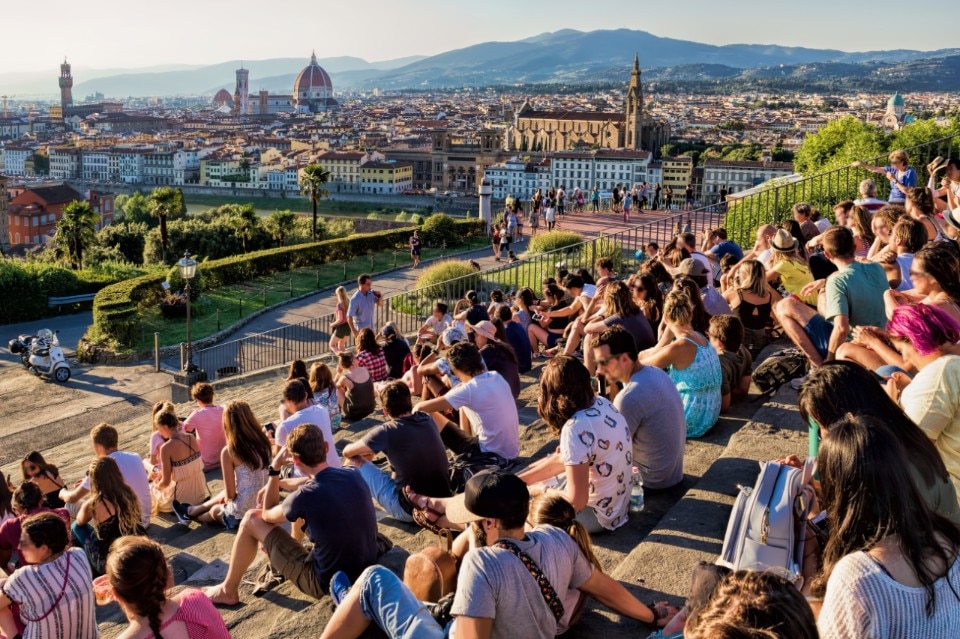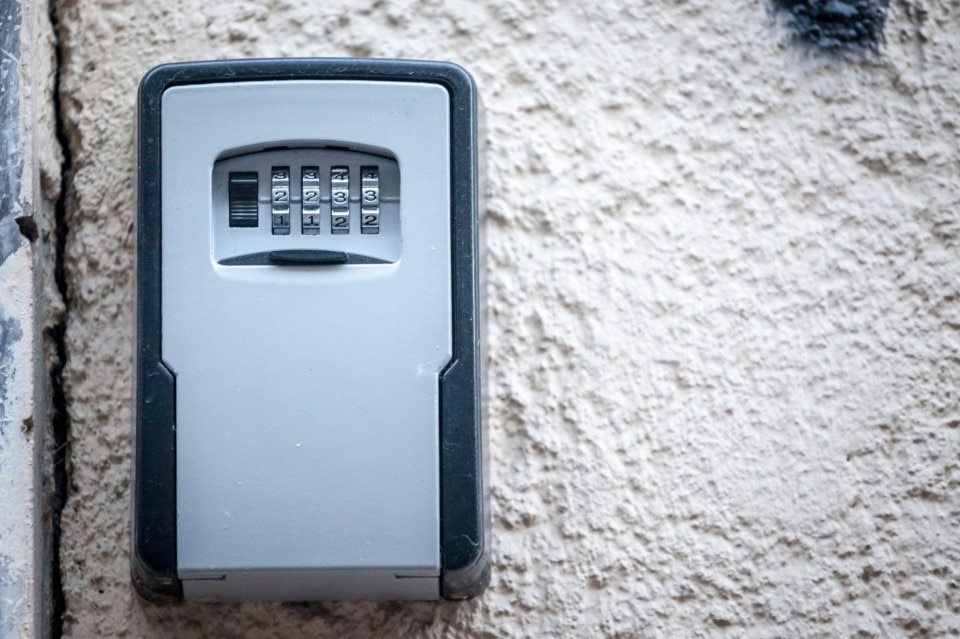Some objects gradually become part of the urban landscape, to the point where it's hard to remember when they first appeared; they seem as if they've always been there. Others arrive as a result of major reorganisation of mobility or the use of space. Take, for example, the electric bike racks, the scooters crowding the edges of pavements, or the outdoor pavilions at bars and restaurants. These are all things that have appeared in recent years, the result of certain institutional arrangements.

Other things, however, spring up from the ground up. Like the mushrooming of lockboxes or keyboxes. They may not yet have reached the density of the famous love locks on Ponte Milvio, but they’ve now become a permanent presence in cities, especially in those with a high number of short-term apartment rentals, particularly through Airbnb—but these boxes now show up on many platforms, even those more traditional hotel-focused ones, like Booking. We won’t go into why people might prefer an apartment over a hotel, nor how the “Airbnb-ization” of cities has created severe hardships for those who have to live there. Michel Houellebecq, once the “bad boy” and now the “bad old man” of French literature, imagined in The Map and the Territory a Europe turned entirely into an open-air museum—and these key lockboxes attached to posts and crevices, enabling quick tourist check-ins, have become a symbol of the museum-ification of the Old Continent.
 The “lucchetti dell'amore” in Rome. Picture by Prospero from Adobe Stock
The “lucchetti dell'amore” in Rome. Picture by Prospero from Adobe Stock
A disturbing symbol. One that hides, like that proverbial hand that is hidden after throwing a stone. Florence, one of the most touristic cities of all time—and no surprise, since the very history of tourism is closely linked to it—was a set destination on the 19th-century Grand Tour, where it was recommended to stay for a few months. Now, however, Florence endures tourism and plans to ban lockboxes in the historic center starting in 2025. Unable to regulate short-term rentals—but can they really be regulated?—the response has been to target the epiphenomenon. A bit like when we don’t like what we see in the mirror: some people go to a psychologist, others to a cosmetic surgeon; Florence has decided to break the mirror. Meanwhile, throughout Italy, as in Spain, protests are springing up against short-term rentals. The symbolic target is precisely the key lockboxes. Just as in the early 2000s, when the love locks of Ponte Milvio, then Paris, and eventually the whole world were sealing couples’ love, the protest against these “lockbox locks” has become the icon of frustration for cities that are becoming more and more expensive, places that seem to welcome us only to spend money, not to live well.
Low wages, rising food costs, energy prices at historic highs, homes that are either impossible to find or unaffordable for those who actually live in these cities. The future of Europe doesn’t look promising, and mass tourism is an easy target, a bit like in that patriarchal saying about wanting to “have your cake and eat it too”: everyone wants just a few, very polite tourists who spend a fortune and don’t drain resources. Who knows what Florence would choose between no tourism at all or the tourism it has today. And if Houellebecq was right, if our destiny is indeed to become the living exhibits of an enormous open-air museum, shouldn’t we start preparing for it?
Opening picture by Jerome from Adobe Stock


